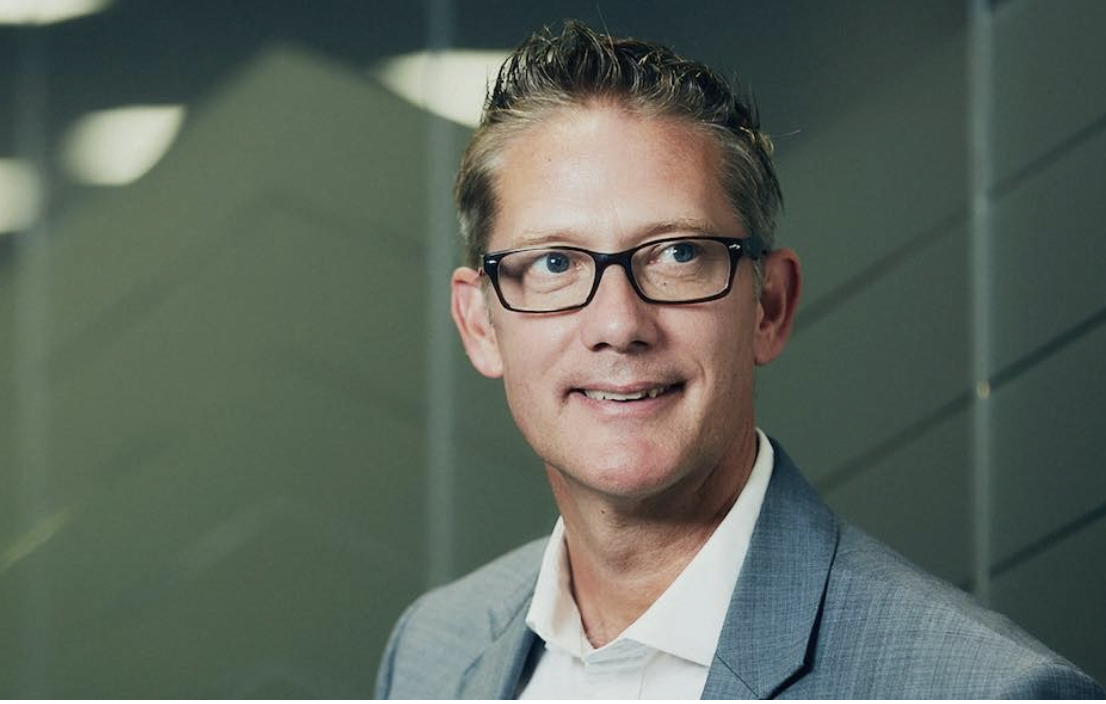In Interviews
Follow this topic
Bookmark
Record learning outcomes
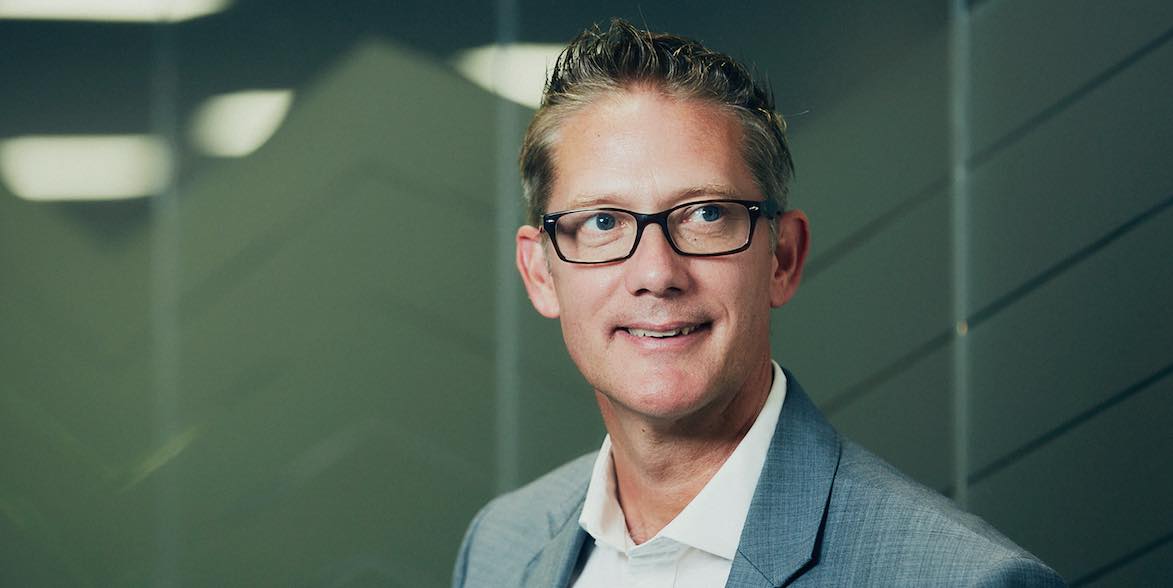
Like the rest of community pharmacy, McKesson UK’s Lloydspharmacy chain has had to respond to the challenges posed by Covid-19. On the downside, the parlous state of community pharmacy is reflected in the announcement of another round of divestment and pharmacy closures, but the group has also reported novel approaches to working during the pandemic, keeping customers supplied with medicines, and supported in maintaining their health during lockdown.
Lloydspharmacy has launched a new medicated weight loss service, a series of exercise videos aimed at those stuck indoors, and has partnered with both Deliveroo and EDF to support their existing delivery services in delivering to people shielding at home, and providing another means to access a range of essential products. I suggest to Toby Anderson, McKesson UK’s chief executive officer, now two years into the job, that the company has taken the challenge of the pandemic to explore doing things differently.
The public perception, the NHS perception, the government’s perception ... have all improved. The sector should be really proud
“I’m personally excited to be in this company and this industry and to help, I would use the word ‘transform’, healthcare in the country,” he says. “Pharmacy has a part to play in partnership with the NHS. There’s clearly challenges with that, but there’s also opportunities. We’re trying to innovate the sector, we’re trying to improve the health outcomes of patients and we have to try some things.”
Lloydspharmacy was quick to recognise the pressures being faced by its store teams. The March 20 announcement of delayed opening, and lunchtime and early closing to “ensure pharmacy teams are able to manage the increasing customer demand and can continue to supply medicines without disruption” preceded the more general relaxations allowed by the NHS across the country by days. “We were clear we needed to protect our employees and our customers. We had to make decisions. A lot of the sector quickly followed, but sometimes somebody has to take the leap of faith,” Toby says.
Stronger, but work to do
He says the pandemic has left pharmacy stronger, but there is work to do to capitalise. “The sector has done a great job of helping people, ensuring they get their medication and also taking more work from doctors and A&E. The public perception, the NHS perception, the government’s perception of community pharmacy have all improved. The sector should be really proud of the part it has played. It has stepped up and demonstrated it is capable of being more closely integrated into the NHS. Funding is a problem. Now we’ve been deemed to do a good job as a sector, I think that gives us an opportunity to address that.”
The recently published review of representation in England says pharmacy should have a vision for its own future. Toby says understanding what the NHS – pharmacy’s customer – wants is important, but focusing just on pharmacy would be wrong.
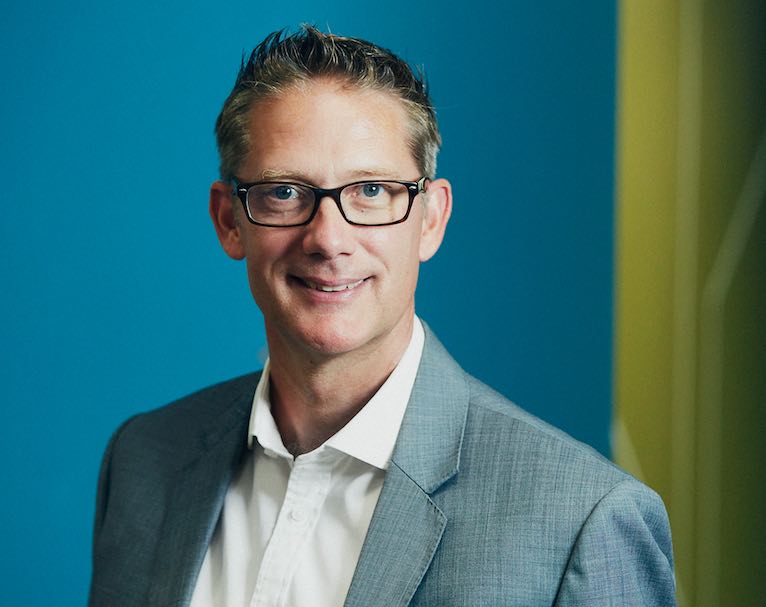 “We continue to talk to the NHS and the Department of Health & Social Care and listen to what it is they need us to provide solutions for, because it’s important we understand the context in which we are operating, which is primary care rather than just our piece of the jigsaw. We have to stop thinking in separate buckets; you need to have a strategy around primary care. What is the patient journey? What is the part pharmacy can play, with other organisations, as clinical providers in that overall journey?
“We continue to talk to the NHS and the Department of Health & Social Care and listen to what it is they need us to provide solutions for, because it’s important we understand the context in which we are operating, which is primary care rather than just our piece of the jigsaw. We have to stop thinking in separate buckets; you need to have a strategy around primary care. What is the patient journey? What is the part pharmacy can play, with other organisations, as clinical providers in that overall journey?
“We have to think: how do we move from a healthcare system where we deal with people who are already sick, to a preventative model where we help people build a better quality of life and ideally prevent more illness and disease. That’s a fundamental change from where we are today, and it would change how you fund things.
“Compared to other markets, UK pharmacy provides great value for money for the government for medicines and in terms of dispensing and other services. We can add even more value if we think about the patient journey and take on work done elsewhere. Research shows that people much prefer coming to a pharmacy than going to a hospital.”
Toby believes that community pharmacy is not just a better cost option. “The country is trying to reduce health inequality,” he says. “We know there is a link between health and deprivation; 99 per cent of people in the most deprived economic areas are within a 20 minute walk of a community pharmacy. Value for money for the Treasury is also about providing better outcomes for people in those situations.
“There’s quite a lot in the five-year contract signed a year ago that moves in that direction. Not all of that has happened yet, but there is good alignment around the direction pharmacy needs to go in helping primary care. The real challenge is doing that at scale and quickly if the overall pharmacy model is to work. We have amazingly trained and capable professionals; we can further invest in training people to do more. That’s the exciting bit and the opportunity.”
So what does he think should happen next? “Obviously, Covid has put some things on hold, but we now need to go after the services in the five-year contract and put our effort into making it happen at scale. The CPCS (Community Pharmacist Consultation Service) has 400,000 referrals. The NHS is very happy with that, but it’s the tip of the iceberg. It needs to be 10 or 20 times more. Community pharmacy can definitely do that.
“We also need to look at the pipeline of services. We need to be saying proactively: ‘We are ready to take on the work. We can do it. We have demonstrated we have the capability to ramp up’. Full stop.”
Mr Anderson also suggests it is time to tackle some longstanding bugbears in the name of efficiency, to create space for pharmacists to concentrate on improving outcomes for patients. “Like original pack dispensing. We still cut off tablets because the manufacturer’s pack doesn’t quite match the prescription? These obvious things should be a no brainer to fix.”
Global support for UK investment
McKesson UK reports through to its US parent through McKesson International, which covers both Europe and Canada, and includes both wholesale distribution and consumer businesses. Lloydspharmacy is not just a UK brand and is used in multiple countries across Europe.
Toby says the company is very well aware of how tough the UK market is. “As a positive, being part of a large global organisation has meant we are still investing in the UK, whether it’s in digital healthcare, putting in a new ERP (resource planning) system or continuing to support the development of our people. A lot of those things would be quite hard to do without the support of both patients and supportive shareholders.”
As the leader of McKesson in the UK, how involved is he personally in making the case for investment in community pharmacy. “We have a number of different businesses of which Lloydspharmacy is one,” he says. “We are a major investor in the UK. We employ a lot of people. We are trying to innovate in healthcare, so I will meet various people in government, the NHS, Department of Health and elsewhere. And we have real specialists in our pharmacy team that help on things like original pack dispensing and so on. It’s better the industry organisations engage to help refine decisions that come down from regulators and the Department of Health than not.”
Toby says there are pros and cons to his role when it comes to influence in one area especially. “When you are super-focused on one particular area, you can be really close to it, and we have great leadership in Lloydspharmacy,” he says. “It’s not possible for me to get into the great detail, but what I am able to see is the macro picture. The country needs to move from ‘fix on fail’ healthcare, to a prevention strategy. We [pharmacy] need to be a more closely integrated part of the NHS and I’m thinking particularly about patient and customer journeys.
For us, it’s not digital or bricks and mortar pharmacy. Or traditional versus innovative. You need both
“In business, you think about where customer needs start and the process points to making sure they are happy. There is some of that in primary care, but I don’t think there's enough. We need to help a patient on their journey as seamlessly as we can, and decide who is best placed to help at each point.”
He says that philosophy applies to how McKesson see its own customers. “McKesson has always been an early investor in innovation, particularly around digital healthcare. We’ve had the Lloydspharmacy Online Doctor, which uses algorithms and digitalisation supported by doctors and pharmacists, for a number of years, though that’s predominantly for private as opposed to NHS care.
“Our view is that it’s our job to provide customers and patients with choices as to how they want to access their healthcare. Consumers and patients like to have options and they would like to have more control as to how they manage their own lives. We want to provide an omnichannel approach. For us, it’s not digital or bricks and mortar pharmacy. Or traditional versus innovative. You need both.”
Leveraging technology
McKesson bought medication management app/online pharmacy/prescription ordering and delivery service Echo – now badged Echo by Lloydspharmacy – in June last year. Customers moving online during the pandemic gave Echo a bump in electronic prescription service nominations – it now has over 200,000 – and the business is firmly established as the number two online pharmacy in the UK, behind Pharmacy2U.
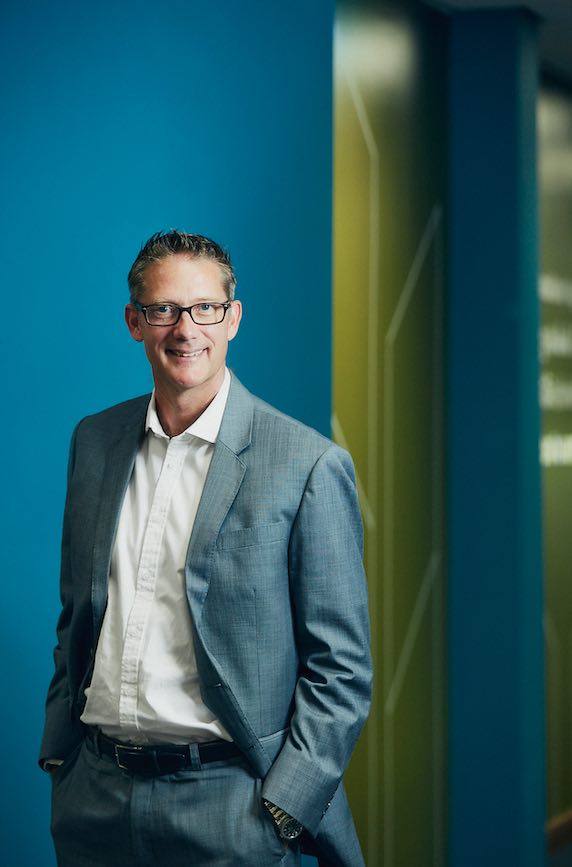 Toby sees Echo as complementary to Lloydspharmacy. “We have a great national network of amazing people that provide instore consultation advice and support to people. We also have a service via an app in your pocket that can give you information on your medicines, can remind you when you need them, with the convenience of online pharmacy,” he says. “We want people to have access to both and I don’t think I should dictate one or other. I would like customers and patients to make that choice themselves. That’s our vision for how we want consumer healthcare businesses to go.”
Toby sees Echo as complementary to Lloydspharmacy. “We have a great national network of amazing people that provide instore consultation advice and support to people. We also have a service via an app in your pocket that can give you information on your medicines, can remind you when you need them, with the convenience of online pharmacy,” he says. “We want people to have access to both and I don’t think I should dictate one or other. I would like customers and patients to make that choice themselves. That’s our vision for how we want consumer healthcare businesses to go.”
Echo is a separate business unit and a different legal entity to Lloydspharmacy, which has its own dispensing hubs. “They have been part of the Lloydspharmacy operation for a while now,” Toby says. “They are a support tool to our pharmacy teams so they can focus on the tasks in a pharmacy only they can do.”
He is watching with interest the discussions on potential law changes to allow hub and spoke operations across different legal entities. “One of the upsides of our investment in consumer facing healthcare is that we would like to provide that technology and support to our wholesale customers and our independent customer base,” he says. “Right now I can’t, because the regulations prohibit it, but as we learn – a lot of this is relatively new – we will be better equipped to support those customers.
“In other parts of the world, we do provide a greater breadth of services to pharmacy customers. It’s expensive technology of course and that’s one of the challenges. One of the reasons the service works in other markets is because the finance flows make it more possible – the cost of medicines and the dispensing fees are just higher.”
The partnership with Deliveroo saw a range of medicines and other essential items listed for direct supply via the Deliveroo app, and is credited with increasing sales in live pharmacy sites by 4 per cent. Another 96 lines were added across the 24 live sites in September and a further expansion to the “go to for pharmacy needs delivered within 30 minutes this cold and flu season” will soon see over 400 SKUs offered from nearly 40 stores, including Central London flagship John Bell & Croyden.
Continuing pressure on the network
The strategic investment in the digital space comes at a time of continuing pressure on McKesson’s national pharmacy network, which has been heightened by the challenge of the pandemic. Lloydspharmacy announced a further restructuring earlier this year. “There have been plenty of reports about the financial state of pharmacy, including the one recently from Ernst & Young for the NPA. It is challenged, right?” Toby says. “We look at our pharmacy estate in terms of where we are best placed to serve our patients and customers. That has led to some divestments and some closures.
“It’s not something we do lightly. Where we have had to close a pharmacy, we have been able to redeploy the vast majority of colleagues. Typically, they would be where we have two pharmacies within a mile so we have been able to transfer patients and staff in a lot of cases to retain the specialist knowledge of those teams. Unfortunately, that is not in every single case, but where we can, we have.”
Some things are exactly the same everywhere, and it would be easier if there was a national menu of services and charges
As well as the pressure on pharmacy, the pandemic has also been transformative to primary care, with patient journeys rapidly reshaped as general practice moved rapidly to remote consultations; some changes which had been talked about for years were implemented in months, if not weeks. “I think it’s great that decision making has sped up,” Toby says. “We want to encourage that – we need to show that we are ready as a sector to take services on board, so we should encourage them to be agile and work with us.”
The local nature of primary care decision making presents a challenge for national groups. He says he understands the situation and argues for an appropriate approach. “Some things are best dealt with locally – there always needs to be flexibility around specific local needs – and we need teams to be empowered to work across different bodies,” he says.
“The flipside is that this can sometimes be to the detriment of speed. Some things are exactly the same everywhere, and it would be easier if there was a national menu of services and charges, and reimbursement rates and so on. That would be a more efficient way to get things done.”
Improved communication
Mr Anderson says that getting involved in local groups can be interesting for team members and helpful to the local community, but community pharmacy needs to remember how it remains successful. “You need to dispense as efficiently as you can, you need to provide great services to the community and you need to be good at selling OTC, otherwise the mathematics just don’t add up,” he says.
“Where we have become much better is in providing our teams with data and information that helps them to understand the real services to go for and the ones that fit our business since we can do those really well.
“Employing over 22,000 people across thousands of different locations, communication is one of the challenges we face. Most employees do not have regular access to a computer because they’re working on the frontline. But almost everybody has a phone, so several months ago we launched an app-based internal communications tool. It’s easy to upload videos, photos and documents, and it’s enabled us to talk in multiple ways to our employee base. By touching a few buttons, they can quickly find out the latest news.”
He says the app has encouraged chat between teams, which has improved problem solving outside the formal hierarchies, as staff can find and share expertise. The pandemic has prompted further change. “This week [the first week of September] we had our second virtual retail conference,” Toby says. “Six months ago, we would get everyone to drive to Coventry or Birmingham for a day. Now we all jump on a Teams call. It enables us to share more frequently.”
One patient, one product at a time
While Lloydspharmacy and AAH will be familiar names to most pharmacists, McKesson UK is a multifaceted healthcare business. “Our vision is to help improve healthcare, one patient and one product at a time,” Toby says. “We have a couple of key businesses, but more recently we have been putting a lot of effort into Trident, our shortline business, and that’s doing really well.
“Then there is Lloydspharmacy Clinical Homecare, which is a further evolution in how pharmacy can help the NHS. We look after about 100,000 patients, with hundreds of nurses providing infusions or treatments, largely specialty drugs, to patients in the community who would otherwise be in hospital. There is a capacity challenge in hospitals and people prefer to be treated at or closer to home. If we can provide healthcare that fits with people’s lifestyles, fantastic. We even have mobile healthcare centres deliveing cancer treatments.”
With medicines becoming more specialised, Toby sees a medium to longer term role for pharmacy more generally. “Thinking upstream, with the investment being put into their R&D pipelines by big drug companies, our sector is well placed to support in that area.”
Some people enjoy the team they’re in; others want to try something different after a while. We can facilitate that
McKesson is the main provider of outsourced outpatient hospital pharmacy; it operates upwards of 50 sites and celebrated the 10th anniversary of its partnership with the Royal Liverpool earlier this year. It also provides pharmacy services to prisons and mental health trusts.
This diversity of pharmacy interests creates opportunities for staff and a range of different career pathways. “We have had some good movement between the different models. Some people prefer a clinical path, others a managerial one,” Toby says. “We want to provide people with opportunities within the traditional Lloydspharmacy estate, but they could go into clinical homecare, hospitals, mental health or digital pharmacy. Some people enjoy the team they’re in; others want to try something different after a while. We can facilitate that.”
Strategic focus at the top
“My job is about setting the strategy, making sure we’ve got a great bunch of people in the business and supporting them in the decisions they need to make. I also spend time with our parent company and other stakeholders in the organisation, making sure we’ve got resources – people and money – focused on the right areas.”
Toby says the Lloydspharmacy dispensing system is a case in point. “When I joined two years ago, pharmacists would often say to me: ‘I want to take care of people, but that system is pretty cranky’. So we are in the pilot stage and starting to roll out a brand new system we have developed that enables the pharmacist and the team to do a better job. It removes some niggles, but as the technology improves, so the user experience should keep improving. I want to make sure teams have the tools to succeed.”
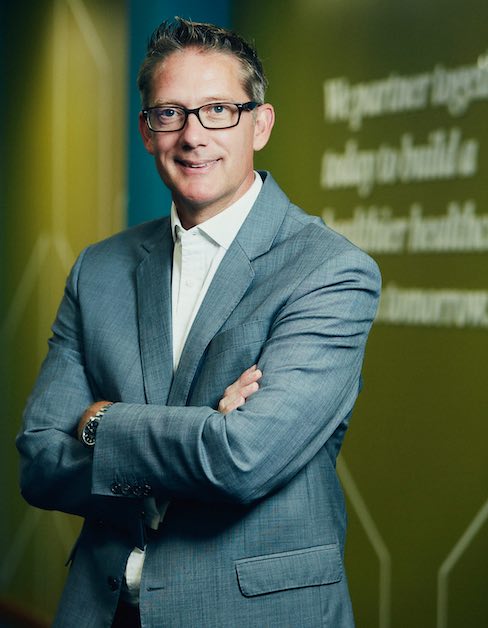
He wants to add something else about the people in the business, given the turbulent times community pharmacy continues to face. “We need to be focused on our work and helping our patients, but the best way to help patients is to look after ourselves as well and try to manage mental alongside physical health because the two are connected,” he says. “Everyone in the sector must feel stressed, because it has been pretty chaotic at times. One of the things I try and do early morning is go for a bike ride or a run, so this September our teams are doing as many miles as they can in support of the Alzheimer’s Society.”
We come back to the current challenges facing the business, and community pharmacy in particular. “I think the sector’s done a great job in the last six months, and government and public perception of pharmacy has improved, which is terrific. We do have some funding challenges, but we should be optimistic that we can take on more services from upstream in the NHS and do them in a really great way,” he says. “That’s what gives me confidence for the future.”

